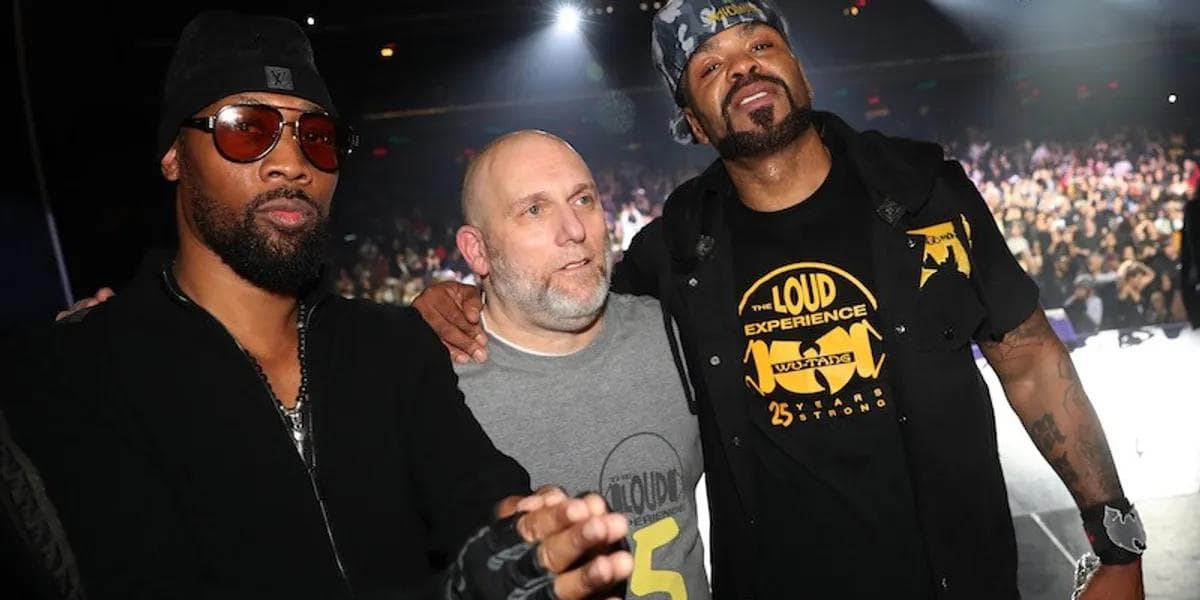2024-08-03
Loud Records: 90s GOAT Rap Label?
By Jamil Weeks

The 1990s was a special decade for rap music. As rap artists continued to push the boundaries of freedom of speech, the popularity of the genre began to rise as the groundbreaking music gradually gained respect. The 90s continued the methodical hostile takeover of rap music over a music industry dominated by pop and rock acts. Future business moguls in the making, like Puff Daddy, Suge Knight, Master P, and J. Prince, understood how to package and market that raw street energy into what would later become the definitive music of that decade. These would-be moguls would form some of the most iconic record labels that would embark on legendary runs. When you think of 90s rap labels, you probably think of Death Row and Bad Boy. Geographically speaking, maybe Rap-A-Lot and No Limit Records comes to mind first if you were raised in the South. These record labels did not just sell records, but they formed cultural movements. Bad Boy with the shiny suits and the Versace. Death Row known for G-Funk and gang-infused soundtracks. However, there was one label that consistently gets overlooked when discussing 90s rap. A label that was the birthplace of countless classic 90s music. The unsung hero of 90s rap labels was none other than Loud Records.
The label was formed in 1991 by label CEO, Steve Rifkind, and label President, Rich Isaacson. Loud was an acronym for “Listeners of Urban Dialect”. The label focused on making music for the streets. Rifkind and Isaacson signed some of the most legendary rap acts to the label. The Loud Records roster included Wu-Tang Clan (with Raekwon and Inspectah Deck as solo artists), Mobb Deep, The Alkaholiks, Xzibit, Big Pun, Funkmaster Flex, Pete Rock, Dead Prez, Twista (known as Tung Twista when he was signed to the label), Project Pat, Three 6 Mafia, M.O.P., The Beatnuts, King Tee, and other notable rap acts. While other rap label rosters represented the best coastal/regional talent, Loud Records recruited talent from all over the country. In addition, despite being known as an East Coast rap label, Loud also was the home for R&B acts like Davina, Adriana Evans, and Yvette Michele. The list of signed artist represented how diverse and well-rounded Loud records actually were compared to their competitors.

One important consideration for why Loud Records should be considered the 90s MVP is the sheer amount of high quality music released on the label. Albums like Enter the Wu (36 Chambers), Only Built 4 Cuban Linx, and The Infamous are considered by many to be top 10 rap albums ever released. These albums were part of the mid-90s renaissance of East Coast albums that paved the way for New York City’s resurgence to the forefront of hip hop at a time when the West Coast dominated rap charts. Loud Records signed East Coast artists that made music that was the answer to West Coast gangsta music. These albums were just as important to that era as The Chronic or Doggystyle. Other notable releases from the label included one of the best double albums in Wu-Tang Forever and the first platinum album from a Latino rapper in Capital Punishment. The amount of great music coming from the label can be attributed to the label have access to some of hip hop’s greatest producers, such as Rza, Havoc, The Beatnuts, and DJ Paul and Juicy J.
Despite being street oriented, Loud Records arguably had a longer run than some of the biggest rap labels. Labels like Death Row and No Limit had about a strong five year run before falling off. Loud Records had a string of gold, platinum, and multi platinum releases throughout the 90s into the early 2000s. In addition, the label also scored some hit records in the streets, such as “Ice Cream”, “Still Not a Playa”, “Sippin On Some Syrup”, “Quiet Storm (Remix)”, and “Ante Up”. Loud Records accumulated artists that would enjoy critical and commercial success due to their ingenious marketing savvy. The Wu-Tang deal was an innovative deal that became the blueprint for future deals for artists as groups. The landmark deal allowed Wu-Tang to sign to Loud Records as a group with the option for each group member to sign to any label of their choosing as solo artists. Loud Records also was instrumental in creating street teams to promote their artists, another blueprint adopted by other labels. When the internet began to gradually consume the lives of the average person, Loud Records was a trailblazer in the rap industry in using the web to reach rap fans.

Loud Records was home to some of the most consequential voices in hip hop such as Pun, Pee, Red, Meth, and Ghost. The label gave us of the greatest DJ and producer mixtape/albums with the 60 Minutes of Funk mixtapes and the Soul Survivor albums. The business acumen of Rifkind and Isaacson allowed Loud Records to partner with distributors like RCA Records and Columbia Records. Rifkind left the company in 2012 but Loud Records would re-emerge in 2020 as Loud Music Group, with Rifkind’s son as one of the newly signed artists. The label produced music that defined my teenage years. Wu-Tang and Mobb Deep were two of my favorite groups growing up. Despite the heavy East Cost influence, Loud Records celebrated a line/up of artists from all across the country. Loud Records should be mentioned with Bad Boy and Death Row as one of the greatest success stories in hip hop in the 90s. The impact the label had on the rap game can be measured in the influence on the music and business world from its acclaimed artists and the label’s clever marketing strategies. Thank you to Steve Rifkind and Rich Isaacson for being the inventive minds behind the music that would change my life forever.